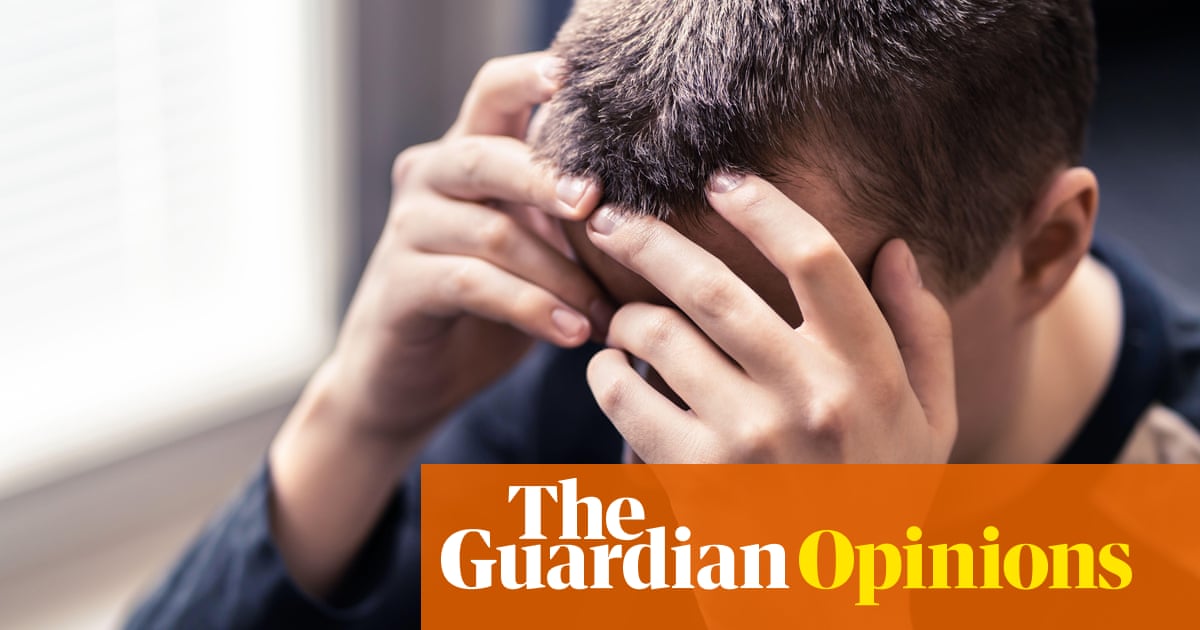
Show caption ‘Homophobia can have catastrophic consequences for straight men.’ Photograph: Tero Vesalainen/Alamy Opinion Why homophobia against straight men matters Owen Jones Understanding the hatred faced by LGBTQ+ people requires that we confront it in all its forms Tue 17 May 2022 10.00 BST Share on Facebook
Share on Twitter
Share via Email
Homophobia cast a long shadow over Callum’s childhood. “Gay”, “bender” and “faggot” were spat at him by classmates with abandon; beaten up in the changing rooms before PE, he was forced to change in the cleaner’s cupboard instead. But the thing is, Callum isn’t actually gay at all: he’s a straight man. That didn’t matter to his assailants – most of Callum’s friends were girls or those also treated as “outcasts”, some of whom were “exploring their sexuality” as teenagers; he hated sport, and loved performing arts.
Now, discussing homophobia in the context of straight men may seem like a distraction. “I feel really conflicted about it now – even though I’m absolutely over the bullying, I always feel like I was the victim of homophobic bullying,” Callum tells me. “But how can a straight cis man be a victim of homophobia?” Indeed, he fears “invalidating the experiences of those who are actually gay whenever I talk about this”. But there’s nothing invalidating about his story at all, because Callum was the victim of sustained homophobic bullying, and the same goes for countless other straight men, too. Their experiences aren’t outliers: they are key to understanding what homophobia actually is.
When I did a shout out for straight men to come forward with their own experiences of homophobia, I was inundated. For some, it was simply for having long hair, or for their dress sense, or for a job – like being a primary school or drama teacher – or for extracurricular activities deemed to be “unmanly”. “I had the shit beaten out of me at least once a week for being gay, or a ‘poof’, or ‘bent’,” says Matthew, a former choirboy. “If anything was considered outside the ‘norm’, it was considered ‘gay’ when I was in secondary school in the noughties,” says another. “I used to dress in a somewhat gothic way: eyeliner, black nail varnish, and I was on the receiving end of homophobic insults quite a few times. Even if you showed any form of affection towards another man, it was ‘gay’.” Indeed, acts of kindness are frequently cited as provoking homophobic responses.
Asking “but what about the straights?” may rankle some LGBT people. A distinction should be made: homophobic bullying is an existential question for a queer person in a way it isn’t for a straight person, because being abused for your actual identity tends to inflict more psychological harm. But that doesn’t mean it can’t have catastrophic consequences for straight men. Whenever Robbie showed any care or kindness as a teenager at his high school, he suffered homophobic verbal and physical abuse, which was compounded by similar treatment from his stepfather. “That led to my long-term, serious mental health conditions, spanning from the age of 11 to my mental breakdown at 23,” he tells me.
The 2010 Equality Act included “perceptive discrimination” for a reason: that is, when people are “treated unfairly” on the grounds they have a protected characteristic, whether they actually do or not. And it is these examples that expose the reality of the bigotry in question. For example, a staple response from apologists for Islamophobia is that hatred of Muslims does not qualify as racism, because Muslims are not a race. Yet witness how many Sikh men – on both sides of the Atlantic – have been victims of Islamophobic hate crimes, underlining that anti-Muslim bigotry is based on racialising minorities.
Similarly, so many straight men are victims of homophobia because it is principally about policing the boundaries of masculinity, rather than repulsion towards gayness per se. Queer men are normally the biggest sufferers of homophobic abuse and violence precisely because they are seen to be the worst violators of masculine norms. What is deemed more “unmanly” than having sex with other men, after all? This is why the designated term for queer people in Margaret Atwood’s dystopic The Handmaid’s Tale – “gender traitors” – is so apt. But if straight men engage in behaviour deemed to violate the boundaries of masculinity, they are at risk of homophobia, too: from failing to show enough physical aggression, to not objectifying women or treating them as equals, to talking about feelings or showing compassion – coded as a feminine trait – towards others.
Homophobia is the bastard child of misogyny: a means of conditioning men into embracing and glorifying traits that menace women and “unmanly” men alike. Eliminating homophobia will principally liberate queer people, but it will free straight men, too, to be themselves. It will mean a society with less violence and more love. And that’s why the homophobic persecution of straight men isn’t a tasteless distraction: to ignore it is to fail to understand homophobia at all.
Owen Jones is a Guardian columnist
Do you have an opinion on the issues raised in this article? If you would like to submit a letter of up to 300 words to be considered for publication, email it to us at [email protected]








